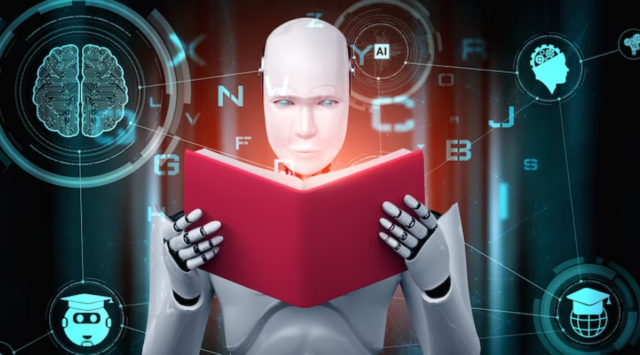AI-Language GenerationI: Revolutionizing Language Generation
AI-Language Generation. (AI) has made significant advancements in various fields. One of the areas where it has recently created a massive impact is language generation. AI-powered language generation systems have revolutionized the way we interact with written content and hold great potential for the future.
Understanding Natural Language Processing (NLP)
At the core of AI language generation lies Natural Language Processing (NLP). A subfield of AI that focuses on the interaction between computers and human language. NLP algorithms enable machines to interpret, understand, and generate human language naturally. By continually learning and adapting from vast amounts of data, these systems have become more efficient and accurate over time.
The Power of AI-Language Generation
AI language generation systems utilize powerful algorithms and deep learning techniques to generate human-like text. They can produce coherent, context-aware, and grammatically correct sentences that resemble human-written content. These systems are designed to understand and respond to user queries. It assists in content creation, automates customer support, and even crafts personalized messages.
Furthermore, ai-language generation has expanded the possibilities in fields. Like journalism and creative writing News articles, product reviews, and even fictional stories. They all can be generated based on desired subject matter and pre-defined styles. Providing a valuable tool for content creators and businesses.
Challenges and Ethical Considerations
Despite the impressive advancements, ai-language generation still poses certain challenges and ethical considerations. There have been instances of generated text amplifying biases present in training datasets, which can perpetuate social and cultural stereotypes. Efforts are underway to mitigate these challenges by refining training data and introducing fairness measures into these systems.
Additionally, issues surrounding the authenticity of generated content arise. It becomes crucial to adopt frameworks and verify sources to ensure the generated text. Which does not mislead or deceive the audience. Striking a balance between automated generation. Also, human intervention is imperative to maintain credibility and uphold ethical standards.
The Future of AI-Language Generation
As the ai-language generation continues to evolve, its impact on diverse industries. That includes e-commerce, education, healthcare, and communication, are expected to soar. Personalized content delivery, and enhanced language translation. Improved chatbot interactions are just a few areas set to benefit from these systems.
Furthermore, with advancements in AI, voice-based language generation is gaining prominence. Voice assistants, natural-language programming interfaces, and interactive speech-based interfaces. They are rapidly becoming more refined and responsive, offering an entirely new experience to users.
Conclusion:
It is crucial to embrace AI language generation. While also addressing the inherent challenges to ensure its responsible and ethical use. By harnessing the immense potential of AI,. We can reshape language generation and unlock incredible possibilities that redefine how we communicate, consume information, and interact with technology.









